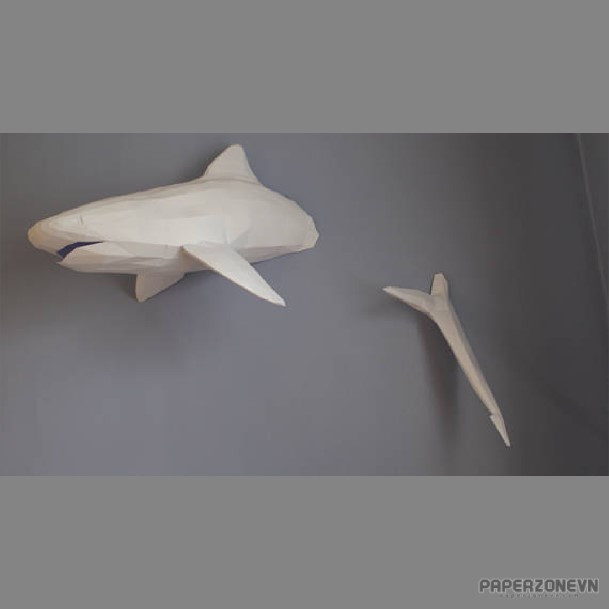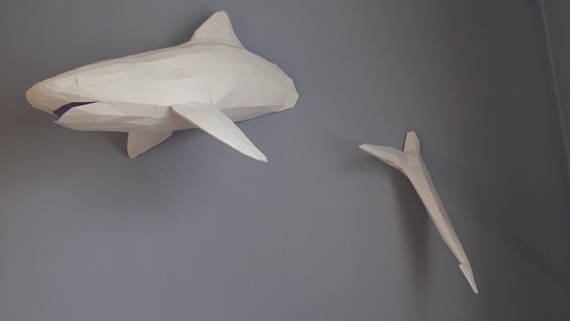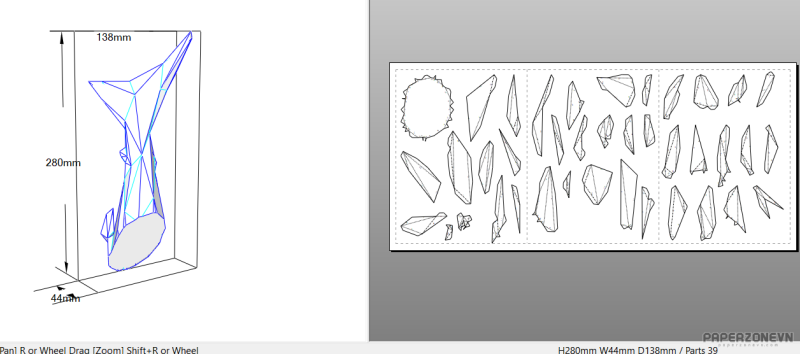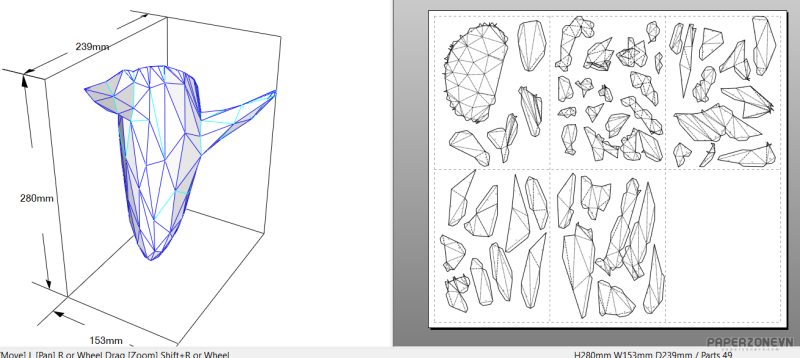- Thumbnail
-

- Resources
- Free Pepakura
- Author
- Free Pepakura
- Printed File Format
- PDO
- Page(s)
- 8
- Part(s)
- 76
- Instruction Format
- PDO
Sponsored:
Sponsored 2:
Wall hanging Shark Papercraft
The etymology of the word shark is uncertain, the most likely etymology states that the original sense of the word was that of "predator, one who preys on others" from the Dutch schurk, meaning'villain, scoundrel' (cf. card shark, loan shark, etc.), which was later applied to the fish due to its predatory behaviour.[8]
A now disproven[original research?] theory is that it derives from the Yucatec Maya word xook (pronounced [ʃoːk]), meaning'shark'.[9] Evidence for this etymology came from the Oxford English Dictionary, which notes shark first came into use after Sir John Hawkins' sailors exhibited one in London in 1569 and posted "sharke" to refer to the large sharks of the Caribbean Sea. However, the Middle English Dictionary records an isolated occurrence of the word shark (referring to a sea fish) in a letter written by Thomas Beckington in 1442, which rules out a New World etymology.



The etymology of the word shark is uncertain, the most likely etymology states that the original sense of the word was that of "predator, one who preys on others" from the Dutch schurk, meaning'villain, scoundrel' (cf. card shark, loan shark, etc.), which was later applied to the fish due to its predatory behaviour.[8]
A now disproven[original research?] theory is that it derives from the Yucatec Maya word xook (pronounced [ʃoːk]), meaning'shark'.[9] Evidence for this etymology came from the Oxford English Dictionary, which notes shark first came into use after Sir John Hawkins' sailors exhibited one in London in 1569 and posted "sharke" to refer to the large sharks of the Caribbean Sea. However, the Middle English Dictionary records an isolated occurrence of the word shark (referring to a sea fish) in a letter written by Thomas Beckington in 1442, which rules out a New World etymology.



Sponsored: Google Advertising
Attachments
Last edited by a moderator:
